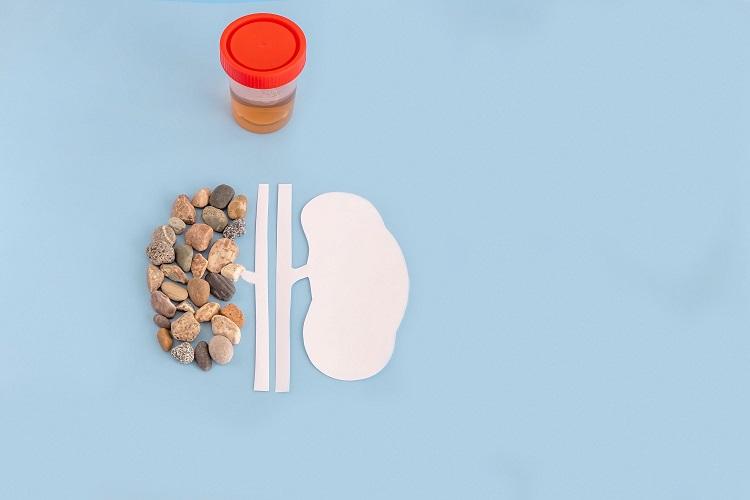Understanding Kidney Stones
April 14, 2022
Deposits of salts and minerals that have hardened inside the kidneys are called kidney stones. These are also called nephrolithiasis, renal calculi, or urolithiasis. Several causes may be responsible for the formation of kidney stones. Medical conditions, excess body weight, the wrong type of diet, and some kinds of medications and supplements have all been known to cause the formation of kidney stones.
What are the Types of Kidney Stones?
It is a great help to know what kind the kidney stone is. Patients and doctors can use this information to prevent kidney stones in the future. One good way to do this is to save the kidney stone and have it analysed.
There are several kinds of kidney stones:
- Uric acid stones: People who lose a lot of body fluid due to chronic diarrhoea are at risk of forming uric acid kidney stones. Other factors may include diabetes or metabolic syndrome. This type of stone can also form in people who consume a diet high in proteins or who have certain genetic factors leading to the formation of uric acid kidney stones.
- Struvite stones: These stones can form quickly and become quite large very quickly without the onset of any symptoms. They usually form after urinary tract infections.
- Cystine stones: A hereditary disorder called cystinuria is the cause of this kind of kidney stone. This disorder causes excessive secretion of a kind of amino acid by the kidney.
- Calcium kidney stones: These are the most common kind of kidney stones. They are usually made up of calcium oxalate. High amounts of vitamin D, diet, metabolic disorders, and intestinal bypass surgery may cause the concentration of calcium oxalate to rise in the urine, leading to the formation of calcium kidney stones.
What are the Symptoms of Kidney Stones?
Kidney stones cause symptoms only when they move about in the kidney or get stuck in the ureter (the tube that joins the kidney to the bladder). As long as they are not moving in the kidney, they will not cause symptoms. But if they do get stuck in the bladder, they may block the outflow of urine. This causes the kidney to swell up and the ureter to spasm, which can be extremely painful. When this happens, the following symptoms may be felt:
- Pain radiating in the region of the groin and the lower back.
- Urination causes a burning sensation.
- Waves of pain that may vary in intensity.
- Extremely sharp pain in the lower back and the side and below the ribs.
Other symptoms may include:
- Red, brown, or pink urine
- Foul-smelling urine that may be cloudy
- A continuous urge to urinate
- Urinating more often or urinating in very small amounts
- Vomiting
- Nausea
- If there is an infection, there may be a fever
What are the Causes of Kidney Stones?
No single factor is predominantly responsible for kidney stones. Several reasons may be contributing factors. When the liquid part of the urine is not sufficient enough to dissolve the crystal-forming substances such as calcium, oxalate, and uric acid, it results in the formation of kidney stones.
When should you Consult a Doctor?
If you experience any of the following, consult a doctor immediately:
- Severe pain that makes sitting still impossible
- Nausea, vomiting, and severe pain
- Fever and simultaneous pain
- Passing blood in the urine
- Difficulty in urination
Depending on the condition, a nephrologist, urologist, pediatrician, or emergency medicine doctor will treat the case.
How can Kidney Stones be Treated?
The line of treatment will vary according to the following factors:
- How big is the stone?
- What is the type of stone?
- Is the stone causing pain?
- Is the stone causing a blockage in the urinary tract?
If the stone is small, it might be sufficient to take prescribed pain medication and consume plenty of fluids to help flush the stone out through the urethra. But if the kidney stone is very big in size, surgery and other procedures might be used. These procedures are:
- Surgery: This is a rare scenario. A tube is inserted into the kidney to remove the stone. You will be required to recuperate in the hospital for two to three days.
- Lithotripsy: In this procedure, shock waves break the large kidney stone into pieces that are small enough to be passed out of your body with urine. It is done under general anesthesia, so the patient does not feel anything during the procedure.
- Ureteroscopy: A tube is inserted into the ureter to remove the stone, or a laser is used to break it into small pieces that can be flushed out of the system.
Conclusion
If the condition is recognized early, it is easily treatable. The doctor can prescribe pain medication and advise you to intake plenty of water to let the kidney stone pass on its own in urine. Once it has passed, kidney stones leave behind no permanent damage. However, if not detected in time, kidney stones may become big and require surgery to be removed.
Request an appointment at
Apollo Spectra Hospitals
Call 18605002244 to book an appointment
If kidney stones are not treated on time, they can cause blockages in the ureter, which can lead to infections and other complications. So it is best to get kidney stones treated as soon as possible.
Once the kidney stone reaches the tip of the opening of the urethra, you need to push hard till it passes out of the body.
A 3mm kidney stone can usually be passed out with urine through the urethra.
NOTICE BOARD
CONTACT US
CONTACT US
 Book Appointment
Book Appointment


.svg)
.svg)
.svg)
.svg)








